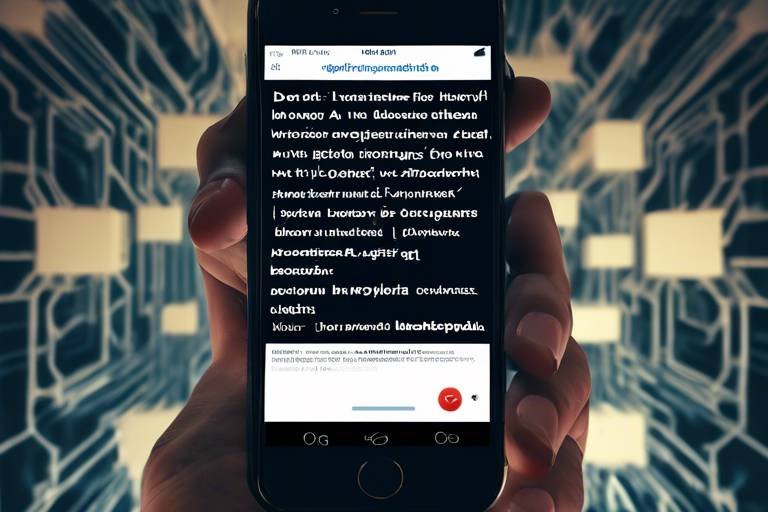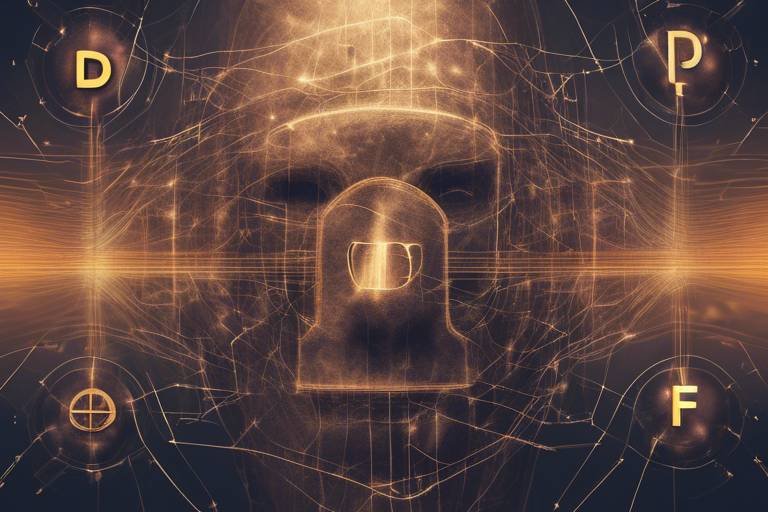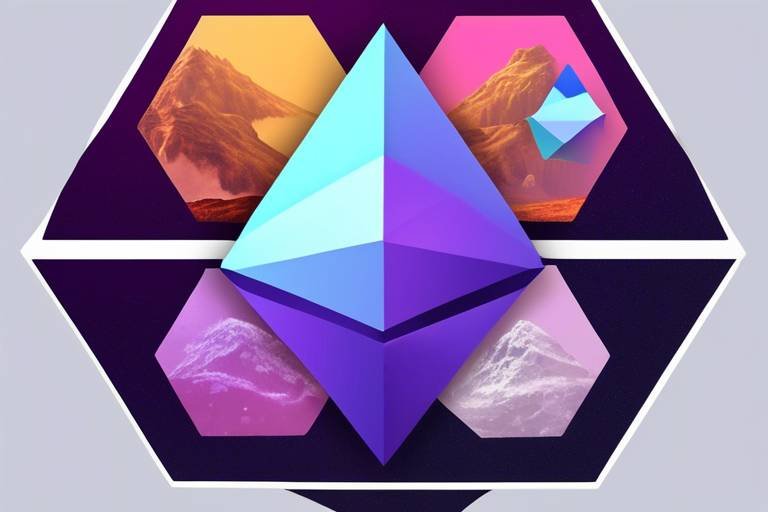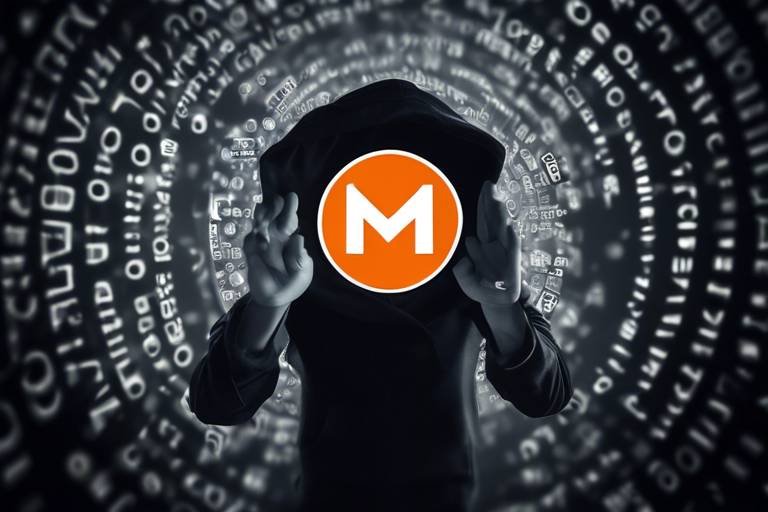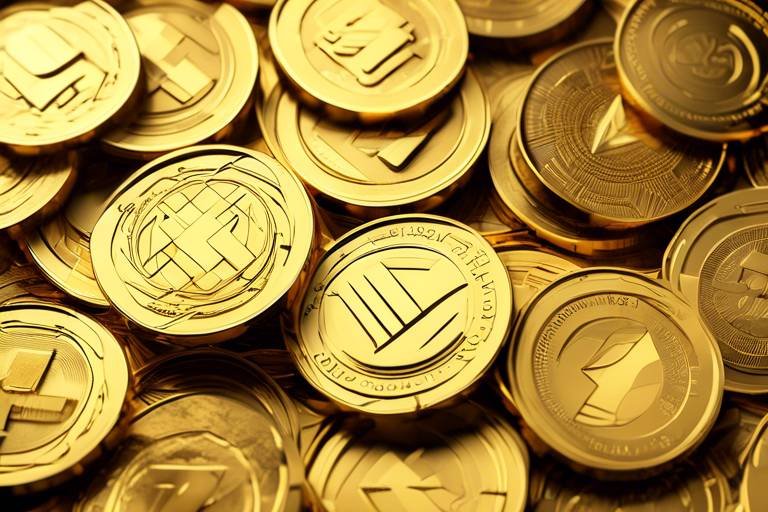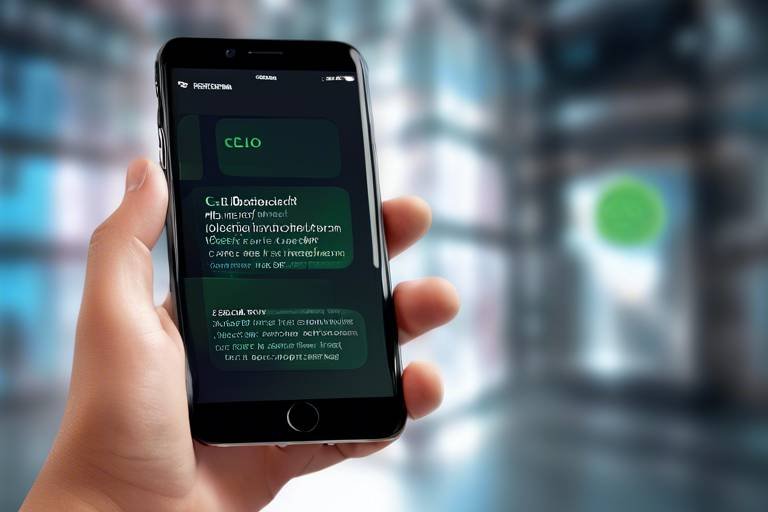Everipedia - The Encyclopedia on the Blockchain
In a world where information is constantly evolving and often misrepresented, Everipedia emerges as a beacon of hope for knowledge seekers everywhere. Imagine an encyclopedia that not only embraces the vastness of human knowledge but also ensures its accuracy and reliability through the power of blockchain technology. This is not just a dream; it’s a reality with Everipedia. By leveraging the decentralized nature of blockchain, Everipedia transforms how we access, share, and curate information, creating a platform that is not only user-driven but also transparent and trustworthy.
So, what sets Everipedia apart from traditional encyclopedias? For starters, it eliminates the centralized control that often leads to biased information. Instead, it empowers users to contribute, edit, and curate content freely, fostering a community where diverse perspectives can flourish. This is akin to a bustling marketplace of ideas, where every voice matters and every contribution counts. With Everipedia, you’re not just a passive consumer of information; you’re an active participant in the knowledge-sharing process.
But how does this all work? At its core, Everipedia utilizes blockchain technology to ensure data integrity and security. Each piece of information is stored in a way that makes it nearly impossible to alter without consensus from the community. This transparency builds trust among users, as they can verify the authenticity of the information they encounter. It’s like having a built-in lie detector that holds everyone accountable for the content they create and share.
Furthermore, Everipedia's decentralized approach means that anyone can contribute. Whether you’re a seasoned expert or a curious learner, your insights are valuable. This democratization of knowledge not only reduces bias but also enriches the platform with a variety of viewpoints. Imagine walking into a library where every book is written by people just like you, sharing their unique experiences and knowledge. That’s the essence of Everipedia.
Of course, user contributions are just one piece of the puzzle. Everipedia employs sophisticated governance mechanisms that allow the community to influence decisions regarding content moderation and platform development. Through voting systems, users can voice their opinions and help shape the future of the platform. It’s a collaborative effort that ensures the encyclopedia evolves in a way that reflects the needs and desires of its users.
In addition to governance, Everipedia harnesses the power of smart contracts. These automated processes ensure that transactions and contributions are executed seamlessly, reducing the potential for disputes and enhancing overall efficiency. Think of smart contracts as the rules of a game that everyone agrees to follow, making the experience smoother and more enjoyable.
As we dive deeper into the Everipedia ecosystem, we can’t overlook the role of tokens. These digital assets serve as a medium of exchange for contributions, rewarding users for their engagement with the platform. It’s an innovative approach that not only incentivizes quality submissions but also creates a vibrant economy around knowledge sharing. Users can earn tokens by creating high-quality content, editing existing articles, and participating in community governance. This rewards system encourages continuous improvement and fosters a sense of belonging within the community.
Tokens can be utilized for various purposes within Everipedia, including:
- Accessing premium features
- Voting on governance proposals
- Supporting content creators
This multifaceted use of tokens adds layers of interaction and engagement, making Everipedia not just a platform for knowledge but a thriving ecosystem where users feel valued and empowered.
Q1: What is Everipedia?
A1: Everipedia is a decentralized encyclopedia built on blockchain technology, designed to provide a transparent and reliable source of information.
Q2: How does blockchain enhance knowledge sharing?
A2: Blockchain technology ensures data integrity and security, allowing users to verify information through a transparent system, fostering trust and accountability.
Q3: Can anyone contribute to Everipedia?
A3: Yes! Everipedia allows anyone to create and edit content, promoting a diverse range of perspectives.
Q4: What are tokens in Everipedia?
A4: Tokens are digital assets that serve as a medium of exchange for contributions and incentivize user engagement within the platform.
Q5: How can I earn tokens?
A5: Users can earn tokens by creating high-quality content, editing articles, and participating in community governance.

[What is Everipedia?]
Everipedia is not just another online encyclopedia; it’s a decentralized encyclopedia that harnesses the power of blockchain technology to create a more transparent and reliable source of information. Imagine a vast library where anyone can contribute their knowledge, edit existing articles, and help curate content without the fear of centralized control. This is the essence of Everipedia! By using blockchain, it ensures that all contributions are recorded in a way that is secure and tamper-proof, making it easier for users to trust the information they find.
At its core, Everipedia aims to empower users. No longer are we at the mercy of a few gatekeepers who decide what information is valid or worthy of inclusion. Instead, anyone with a passion for sharing knowledge can jump in and make their mark. This community-driven approach not only reduces bias but also promotes a diverse range of perspectives. Just like a potluck dinner where everyone brings their favorite dish, Everipedia allows a variety of voices to come together, enriching the overall knowledge base.
One of the standout features of Everipedia is that it rewards users for their contributions. When you create or edit content, you’re not just helping others; you’re also earning tokens that can be used within the platform. This incentivizes quality submissions and encourages active participation, transforming knowledge sharing into a vibrant community experience. Think of it as a game where everyone wins—users get to share their expertise, and in return, they are rewarded for their efforts.
In this way, Everipedia is reshaping the way we think about information. It’s more than just a place to look up facts; it’s a living, breathing ecosystem where knowledge is constantly evolving. With the backing of blockchain technology, users can verify the authenticity of the information they encounter, fostering a sense of trust and accountability. In a world where misinformation can spread like wildfire, Everipedia stands as a beacon of reliability and community engagement.

[How Does Blockchain Enhance Knowledge Sharing?]
Blockchain technology is like a digital fortress for information, ensuring that what you read is both trustworthy and secure. In the world of Everipedia, this technology is the backbone that supports the entire ecosystem of knowledge sharing. Imagine a library where every book is not only written by an author but also verified by a committee of readers who have the power to ensure that the information is accurate. This is what blockchain does for Everipedia—it creates a transparent and immutable record of information that users can rely on.
One of the most significant advantages of using blockchain in knowledge sharing is its ability to ensure data integrity. Every piece of information contributed to Everipedia is stored in blocks, which are linked in a chain. Once a block is added to the chain, it cannot be altered or deleted without consensus from the network. This means that users can feel confident that the information they are reading has not been tampered with or biased by a single entity. The decentralization aspect of blockchain fosters a sense of community accountability, where everyone has a stake in maintaining the quality and accuracy of the content.
Furthermore, the transparent nature of blockchain allows users to trace the history of an article. They can see who created it, what edits were made, and when those changes occurred. This level of transparency not only builds trust among users but also encourages a collaborative spirit. When contributors know that their efforts are being recognized and that they can track the evolution of their work, they are more likely to engage actively in the platform.
To illustrate how blockchain enhances knowledge sharing, consider the following table that summarizes its key benefits:
| Benefit | Description |
|---|---|
| Data Integrity | Ensures that information is accurate and cannot be altered without consensus. |
| Transparency | Allows users to trace the history of contributions and edits made to articles. |
| Community Accountability | Encourages users to take responsibility for the quality of content shared. |
| Incentivized Participation | Rewards users for quality contributions, promoting ongoing engagement. |
In addition to these benefits, blockchain technology facilitates a peer-to-peer interaction model. This means that users can directly communicate and collaborate without the need for intermediaries. Imagine being able to share your insights with others around the globe, all while knowing that your contributions are protected and valued. This is the essence of Everipedia's approach to knowledge sharing, where users are not just passive consumers of information but active participants in its creation and curation.
Ultimately, the integration of blockchain into Everipedia transforms the way we think about encyclopedic knowledge. It breaks down traditional barriers and opens up a world of possibilities for collaboration, innovation, and most importantly, trust. As we continue to navigate this digital age, platforms like Everipedia will play a crucial role in shaping how we access and share information, ensuring that it remains a collective endeavor driven by the community.
- What is Everipedia? Everipedia is a decentralized encyclopedia that utilizes blockchain technology to provide a transparent and reliable source of information.
- How does blockchain ensure data integrity? Blockchain creates an immutable record of information, making it nearly impossible to alter or delete content without consensus from the network.
- Can anyone contribute to Everipedia? Yes, Everipedia encourages user contributions, allowing anyone to create or edit articles.
- What are the benefits of using tokens in Everipedia? Tokens incentivize users to engage with the platform, rewarding them for quality contributions and participation in governance.

[Decentralization Explained]
Decentralization is at the heart of Everipedia, creating a unique environment where information is not controlled by a single entity. Imagine a library where every visitor can add their own books, edit existing ones, and even suggest changes to the library’s layout. This is what Everipedia aims to achieve through its decentralized model. By allowing anyone to participate in content creation and curation, it not only democratizes knowledge but also enriches it with diverse perspectives.
The traditional centralized model of information sharing often leads to biases and limitations in the content presented. In contrast, Everipedia’s decentralized approach fosters a more inclusive atmosphere. Here’s how:
- Community Engagement: Users from around the globe can contribute their unique insights and knowledge, leading to a richer tapestry of information.
- Reduction of Bias: With multiple contributors, the chances of biased or one-sided information decrease significantly. This creates a more balanced representation of facts.
- Global Collaboration: Contributors can collaborate in real-time, sharing knowledge across borders and cultures, making learning a truly global endeavor.
Furthermore, this model empowers users by giving them a sense of ownership over the content. When individuals can see their contributions reflected in the encyclopedia, it motivates them to engage more actively. It’s similar to how a community garden thrives; when everyone pitches in, the garden flourishes, and so does the sense of belonging among its caretakers.
Everipedia also employs various governance mechanisms that allow users to influence the platform's direction. Through voting systems, users can weigh in on content moderation and platform improvements, ensuring that the community’s voice is heard. This is akin to a town hall meeting where everyone has a say in the decisions that affect them. By integrating these democratic principles, Everipedia not only enhances user engagement but also maintains a high standard of content quality.
In summary, decentralization in Everipedia is not just a technical feature; it’s a philosophy that promotes collaboration, diversity, and accountability. By enabling users to contribute freely and govern collectively, Everipedia is setting a new standard for how knowledge is shared and curated in the digital age.
- What is the main advantage of decentralization in Everipedia? Decentralization reduces bias and promotes a diverse range of perspectives, leading to a more comprehensive understanding of topics.
- How can I contribute to Everipedia? You can create or edit articles directly on the platform, and your contributions may earn you tokens as a reward.
- What role do tokens play in the community? Tokens serve as a medium of exchange for contributions and can be used for voting on governance proposals and accessing premium features.

[User Contributions]
Everipedia thrives on the active participation of its users, creating a vibrant community where knowledge is not just shared but also enriched. Imagine a world where every individual can contribute their insights and expertise to a collective pool of information. That’s precisely what Everipedia enables. Users can create, edit, and curate content, transforming it into a dynamic tapestry of knowledge that reflects diverse perspectives and experiences. This collaborative approach ensures that the encyclopedia is not only more comprehensive but also more accurate and relevant to its audience.
The platform is designed to be user-friendly, allowing anyone with an internet connection to jump in and start contributing. Whether you’re a seasoned expert in a field or an enthusiastic learner, your voice matters. When you contribute to Everipedia, you're not just adding information; you’re participating in a global conversation. It’s like being part of a massive potluck dinner, where everyone brings their unique dish to the table, making the feast richer and more enjoyable for everyone involved.
Moreover, Everipedia incentivizes quality contributions through a rewarding system. Contributors earn tokens for their efforts, which can be seen as a form of recognition for their hard work. This token system not only encourages individuals to put forth their best content but also fosters a sense of community. Contributors are motivated to engage actively, knowing that their efforts will be acknowledged and rewarded.
In addition, the platform employs a robust feedback mechanism, where community members can review and provide constructive criticism on contributions. This peer review process is essential for maintaining high standards of accuracy and reliability. It’s like having a team of editors who are just as passionate about quality as you are, ensuring that the information presented is trustworthy and well-researched.
To further enhance user contributions, Everipedia has implemented various features that facilitate collaboration. For example, users can easily track changes made to articles, allowing them to see how the content evolves over time. This transparency not only builds trust but also encourages users to engage with the platform more deeply. After all, when you see your contributions being built upon and appreciated by others, it’s incredibly motivating!
In summary, user contributions are the lifeblood of Everipedia. They transform the platform into a living encyclopedia, constantly evolving and adapting to the needs of its users. By empowering individuals to share their knowledge and rewarding their efforts, Everipedia creates a rich, diverse, and dynamic environment that benefits everyone involved. So, whether you’re here to learn or to share, your contributions can make a significant impact in the world of knowledge sharing.
- What types of content can I contribute to Everipedia?
You can contribute articles on a wide range of topics, edit existing entries, and even participate in discussions about content improvements.
- How are contributions rewarded?
Contributors earn tokens for high-quality submissions, which can be used within the platform for various purposes.
- Is there a review process for contributions?
Yes, there is a peer review mechanism in place that allows community members to provide feedback on contributions.
- Can anyone edit articles on Everipedia?
Absolutely! Everipedia encourages open participation, so anyone can contribute and edit articles.
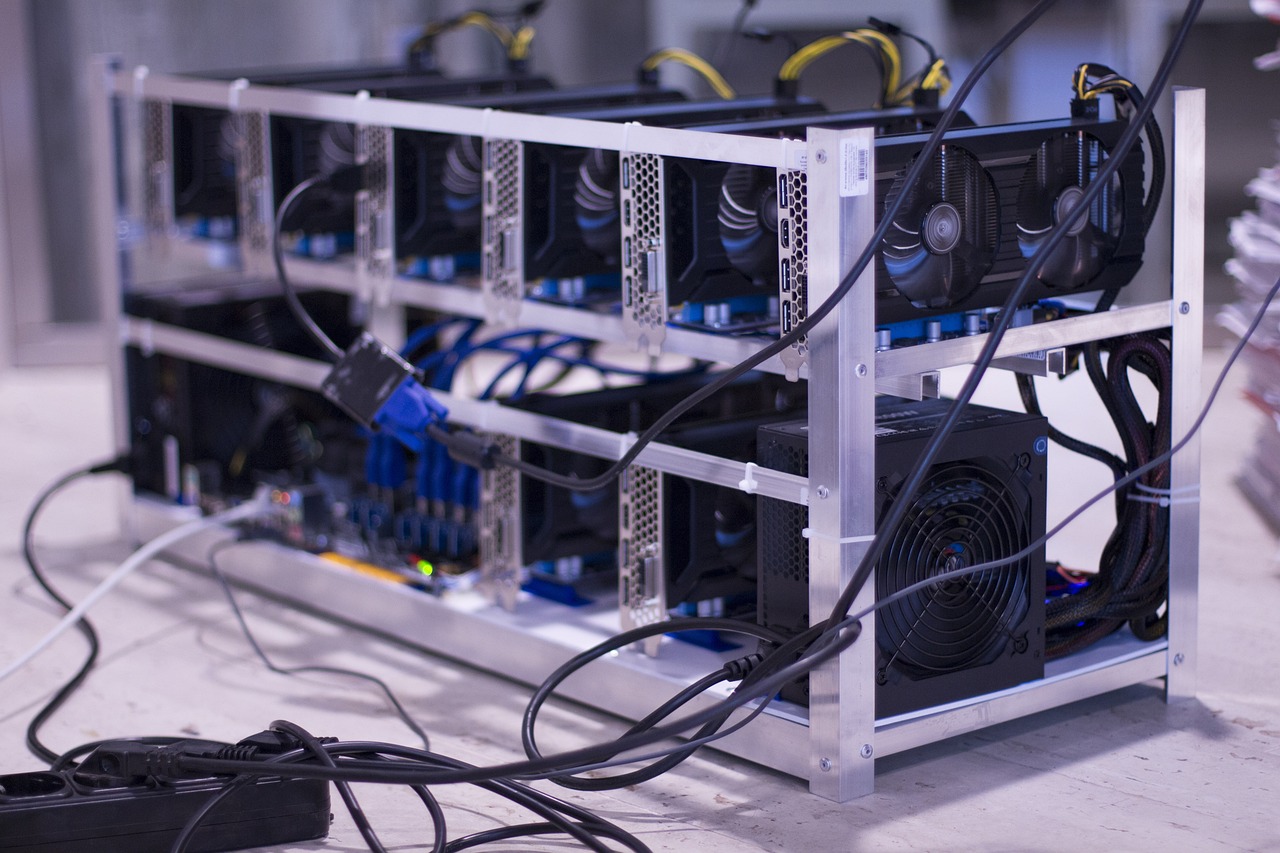
[Governance Mechanisms]
In the vibrant ecosystem of Everipedia, governance mechanisms play a pivotal role in shaping the platform's content and community dynamics. Imagine a bustling marketplace where every voice matters; that’s essentially how governance operates here. The platform employs a decentralized voting system that empowers users to have a say in crucial decisions, from content moderation to feature updates. This structure not only fosters a sense of ownership among users but also cultivates a culture of accountability and transparency.
At the heart of Everipedia's governance are community proposals. Users can submit proposals regarding changes or improvements to the platform, which are then subjected to community voting. This means that the power isn't concentrated in the hands of a few; rather, it is distributed among all contributors. For instance, if a user believes an article needs more citations or that a new feature could enhance user experience, they can propose this change. The community then votes, and the outcome directly influences the platform's development.
To ensure that the governance process remains fair and efficient, Everipedia has implemented a tiered voting system. This system takes into account the reputation and contributions of users, creating a more nuanced approach to decision-making. Users who actively contribute high-quality content earn more voting power, which incentivizes them to engage meaningfully with the platform. This mechanism not only rewards dedication but also helps in maintaining the quality of information shared on Everipedia.
Moreover, the governance model is designed to adapt and evolve over time. As the community grows and diversifies, so too will the mechanisms that guide it. This adaptability is crucial in a digital age where information is constantly changing, and the needs of users can shift rapidly. By having a flexible governance structure, Everipedia can ensure that it remains relevant and responsive to its community's needs.
In summary, the governance mechanisms in Everipedia are not just about rules and regulations; they embody the spirit of collaboration and innovation. By allowing users to influence decisions, the platform creates a dynamic environment where knowledge can flourish. It's a bit like tending to a garden; each user’s contribution helps the community grow stronger and more resilient.
- What is the purpose of governance mechanisms in Everipedia? Governance mechanisms ensure that all users have a voice in the platform's development and content management.
- How are proposals submitted and voted on? Users can submit proposals, which are then voted on by the community to determine their implementation.
- What influences a user's voting power? A user's voting power is influenced by their contributions and reputation within the Everipedia community.
- Can governance mechanisms change over time? Yes, Everipedia's governance model is designed to be adaptable to meet the evolving needs of its community.

[Smart Contracts in Everipedia]
Smart contracts are like the unsung heroes of the Everipedia platform, quietly working in the background to ensure everything runs smoothly. But what exactly are they? In simple terms, smart contracts are self-executing contracts with the terms of the agreement directly written into code. This means that once certain conditions are met, the contract automatically executes the agreed-upon actions without the need for intermediaries. Think of them as the digital butlers of Everipedia, ensuring that all transactions and interactions are handled efficiently and reliably.
In the context of Everipedia, smart contracts play a crucial role in managing user contributions and rewards. When a user creates or edits content, the smart contract automatically verifies the quality of the submission based on predetermined criteria. If the content meets these standards, the contract triggers the release of tokens to the user as a reward. This process not only streamlines operations but also minimizes the potential for disputes over content quality or payment, creating a more harmonious environment for contributors.
Moreover, smart contracts enhance transparency on the platform. Every action taken is recorded on the blockchain, allowing users to track contributions and rewards with absolute clarity. This level of transparency fosters trust among users, as everyone can see how decisions are made and how rewards are distributed. In a world where misinformation can spread like wildfire, having such a reliable system in place is invaluable.
To illustrate how smart contracts operate within Everipedia, consider the following table:
| Action | Condition | Result |
|---|---|---|
| Create New Article | Article meets quality standards | User receives tokens |
| Edit Existing Article | Changes are approved by community | User receives tokens |
| Vote on Governance Proposal | User holds tokens | Vote is counted |
As you can see, smart contracts not only automate processes but also ensure that users are rewarded fairly for their contributions. This encourages a vibrant community where quality content is prioritized, and everyone is motivated to participate actively. In essence, smart contracts are the backbone of Everipedia's ecosystem, providing the structure needed to support a decentralized and user-driven platform.
In conclusion, the integration of smart contracts into Everipedia is a game changer. They not only enhance efficiency and transparency but also empower users by rewarding their contributions fairly. As the platform continues to grow, the role of smart contracts will undoubtedly become even more significant, paving the way for a new era of knowledge sharing that is as reliable as it is innovative.
- What are smart contracts? Smart contracts are self-executing contracts with the terms of the agreement written into code, allowing for automated transactions without intermediaries.
- How do smart contracts work in Everipedia? They verify user contributions and automatically reward users with tokens when certain conditions are met.
- Why are smart contracts important? They enhance efficiency, transparency, and trust within the platform, ensuring fair rewards for users.
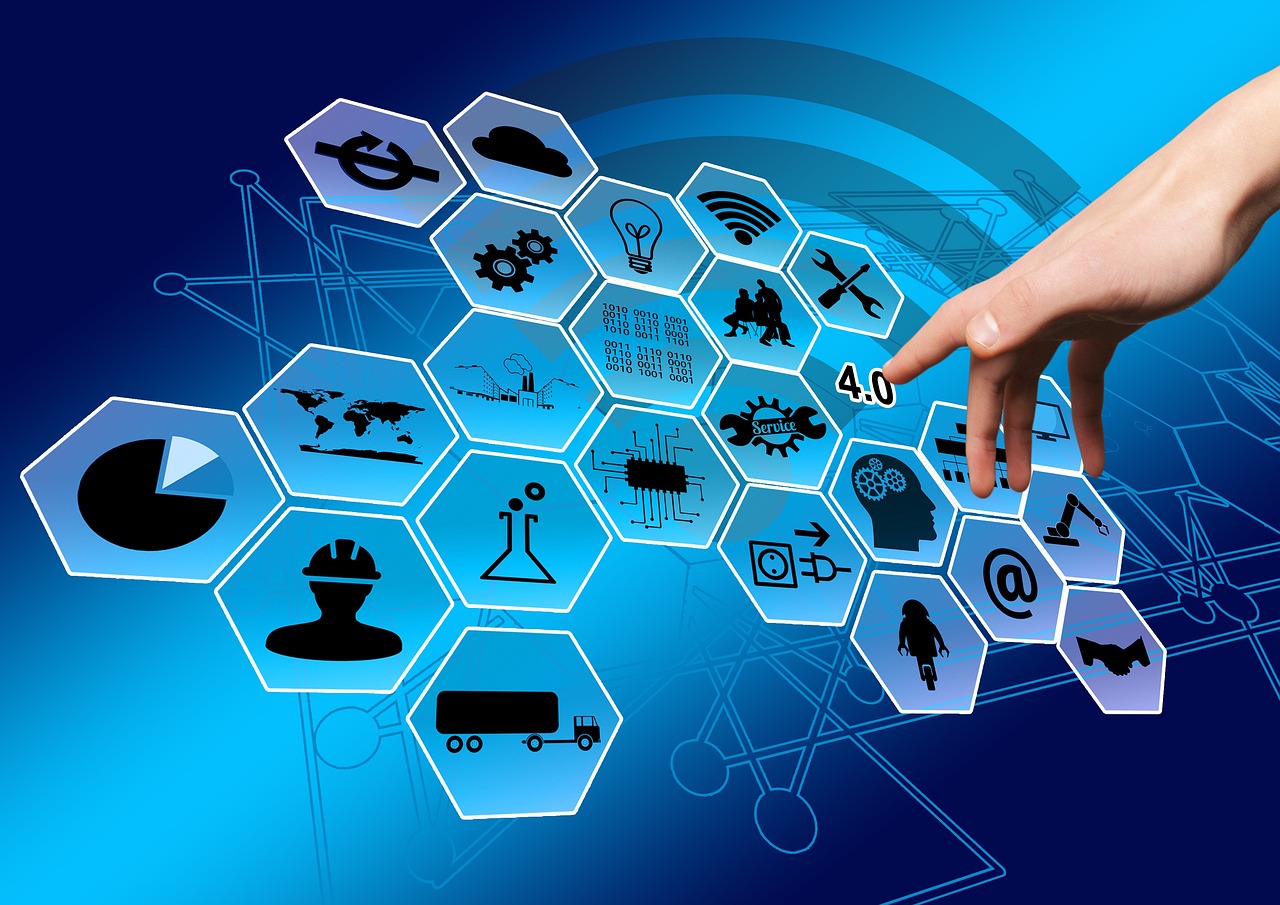
[The Role of Tokens in Everipedia]
Tokens play a crucial role in the Everipedia ecosystem, serving as more than just a medium of exchange; they are the lifeblood of the platform. Imagine tokens as the currency of knowledge, where every contribution, whether it's creating a new article or refining an existing one, is rewarded. This incentivization model not only encourages users to engage actively but also ensures that the quality of content remains high. In a traditional encyclopedia, the contributors are often unseen and unrewarded, but in Everipedia, every effort is acknowledged and compensated.
Everipedia's token system operates on the principle of decentralization, allowing users to earn tokens through various activities. For instance, when a user creates a high-quality entry or improves an existing one, they can earn tokens that reflect their contribution to the community. This system fosters a sense of ownership and pride among users, making them more likely to participate actively. To give you a clearer picture, here’s a brief overview of how users can earn tokens:
| Activity | Tokens Earned |
|---|---|
| Creating New Content | 100 Tokens |
| Editing Existing Articles | 50 Tokens |
| Participating in Governance | 30 Tokens |
But it doesn't stop there! Tokens also serve as a key to unlock various features within the platform. Users can use their tokens to access premium content, vote on governance proposals, or even support content creators directly. This vibrant economy around knowledge sharing not only enhances user experience but also ensures that quality content is continuously generated. Think of it as a thriving marketplace where knowledge is exchanged and rewarded.
Moreover, the use of tokens introduces a gamification element to the platform, making the process of knowledge sharing more engaging and fun. Users are encouraged to climb the ranks, earn more tokens, and gain recognition within the community. It's like leveling up in a game, where every achievement brings a sense of accomplishment and motivates users to contribute even more.
In summary, the role of tokens in Everipedia is multifaceted. They are not just a reward system; they are a fundamental part of a decentralized knowledge-sharing ecosystem that empowers users, promotes high-quality content, and creates a vibrant community. As Everipedia continues to evolve, the token economy will undoubtedly play a pivotal role in shaping its future.
- What are tokens in Everipedia? Tokens are digital assets that users can earn by contributing content, editing articles, and participating in governance.
- How can I earn tokens? You can earn tokens by creating new content, editing existing articles, and engaging in community governance activities.
- What can I do with tokens? Tokens can be used to access premium features, vote on governance proposals, and support other content creators.
- Is there a limit to how many tokens I can earn? No, there is no cap on the number of tokens you can earn; the more you contribute, the more tokens you can accumulate!

[Earning Tokens]
In the vibrant ecosystem of Everipedia, earning tokens is not just a way to gain rewards; it's a fundamental part of the experience that fuels the community. Imagine stepping into a bustling marketplace where every contribution you make—be it an article, an edit, or a thoughtful comment—earns you currency that you can spend, save, or invest. This is precisely how Everipedia operates, making knowledge sharing not only rewarding but also engaging.
Users can earn tokens in several ways, each designed to promote high-quality contributions and active participation. For instance, when you create an original article that resonates with the community, you’re not just sharing knowledge; you’re also unlocking a treasure trove of tokens. The same goes for editing existing articles. If your edits enhance clarity, accuracy, or depth, you’ll find that your efforts are recognized and rewarded. This encourages users to strive for excellence, knowing that their hard work will pay off.
Additionally, participation in community governance is another avenue for earning tokens. By voting on proposals or engaging in discussions about platform development, you’re not just a passive observer—you’re an active participant in shaping the future of Everipedia. This level of engagement amplifies the sense of ownership and responsibility within the community.
To put it simply, the token economy within Everipedia is structured to ensure that every contribution matters. Here’s a quick overview of how you can earn tokens:
- Creating Original Content: Write articles that provide valuable insights or information.
- Editing Existing Articles: Improve the quality of content by making edits that enhance readability and accuracy.
- Participating in Governance: Vote on community proposals and engage in discussions that influence the platform's direction.
This system not only incentivizes users to contribute but also cultivates a rich, diverse repository of knowledge. The more you engage, the more tokens you accumulate, which can then be used for various purposes within the platform, such as accessing premium features or supporting fellow content creators. In a way, every token you earn is a testament to your contribution to the collective knowledge base, reinforcing the idea that knowledge is not just power; it’s also a currency in the Everipedia community.
Q: How do I start earning tokens on Everipedia?
A: Simply create an account, start contributing high-quality content, and engage with the community by editing articles and participating in governance.
Q: What can I do with the tokens I earn?
A: Tokens can be used for accessing premium features, voting on governance proposals, and supporting other content creators within the platform.
Q: Is there a limit to how many tokens I can earn?
A: No, there is no limit! The more you contribute and engage, the more tokens you can earn, making it an exciting opportunity for active participants.

[Using Tokens]
In the vibrant ecosystem of Everipedia, tokens are not just digital currency; they are the lifeblood of the community. Users can utilize these tokens in a variety of ways that enhance their experience and contribute to the overall growth of the platform. Imagine tokens as the fuel that powers a well-oiled machine, where every contribution and interaction makes the entire system run smoother and more efficiently.
One of the primary uses of tokens is to access premium features within Everipedia. These features might include advanced editing tools, analytics for content performance, or exclusive content that isn't available to non-token holders. By providing this tiered access, Everipedia encourages users to engage more deeply with the platform, knowing that their contributions can yield tangible benefits.
Additionally, tokens play a crucial role in governance. Users can use their tokens to vote on various proposals that affect the platform's direction. This democratic approach ensures that the community has a say in the evolution of Everipedia. It's like having a say in a town hall meeting where everyone’s voice matters. The more tokens a user holds, the more influence they have, creating a sense of ownership and responsibility towards the platform.
Moreover, tokens can be used to support content creators directly. Users may tip authors whose articles they find particularly insightful or helpful. This not only fosters a culture of appreciation but also incentivizes creators to produce high-quality content consistently. Think of it as a digital applause; when someone writes something that resonates with you, showing appreciation can motivate them to keep sharing their knowledge.
Here’s a quick breakdown of how tokens can be utilized:
| Use Case | Description |
|---|---|
| Access Premium Features | Unlock advanced tools and exclusive content. |
| Voting on Governance Proposals | Participate in decision-making processes affecting the platform. |
| Supporting Content Creators | Tip authors for their valuable contributions. |
In summary, tokens in Everipedia are much more than just a means of exchange; they are a vital component that fuels the community's growth and engagement. By using tokens wisely, users can enhance their experience, contribute to the platform’s evolution, and support fellow contributors, creating a rich tapestry of knowledge sharing and collaboration.
- What are Everipedia tokens? Tokens are digital assets used within the Everipedia platform to facilitate transactions, access features, and participate in governance.
- How can I earn tokens? You can earn tokens by creating quality content, editing articles, and participating in community governance.
- Can I use tokens outside of Everipedia? Tokens are primarily designed for use within the Everipedia ecosystem and may not be transferable to other platforms.
- What happens if I lose my tokens? Always ensure to keep your wallet secure; lost tokens cannot be recovered.
Frequently Asked Questions
- What is Everipedia?
Everipedia is a decentralized encyclopedia that leverages blockchain technology to provide a transparent and reliable source of information. It allows users to contribute, edit, and curate content freely, without the constraints of centralized control.
- How does blockchain enhance knowledge sharing on Everipedia?
Blockchain technology promotes data integrity and security, enabling users to verify information through a transparent system. This fosters trust and accountability, making the knowledge-sharing process more reliable.
- What does decentralization mean in the context of Everipedia?
Decentralization in Everipedia means that the platform is community-driven. Anyone can contribute and edit articles, which reduces bias and encourages a diverse range of perspectives in the information presented.
- How can users contribute to Everipedia?
Users can create and edit content on Everipedia. The platform rewards quality contributions with tokens, incentivizing active participation and continuous improvement within the community.
- What are governance mechanisms in Everipedia?
Everipedia employs governance mechanisms such as voting systems that empower users to influence decisions regarding content moderation and platform development, ensuring that the community has a say in how the platform evolves.
- What role do smart contracts play in Everipedia?
Smart contracts automate processes within Everipedia, ensuring that transactions and contributions are executed as intended. This enhances efficiency and minimizes the potential for disputes.
- How do tokens function in Everipedia?
Tokens serve as a medium of exchange within Everipedia's ecosystem. They incentivize users to engage actively with the platform and can be used for accessing premium features, voting on governance proposals, and supporting content creators.
- How can users earn tokens on Everipedia?
Users can earn tokens by creating high-quality content, editing existing articles, and participating in community governance. This rewards system encourages ongoing engagement and improvement on the platform.
- What can tokens be used for in Everipedia?
Tokens can be used for various purposes, including accessing premium features, voting on governance proposals, and financially supporting content creators. This creates a vibrant economy around knowledge sharing.

